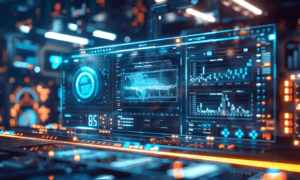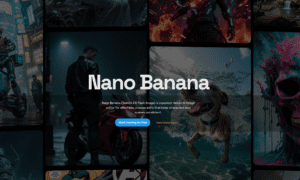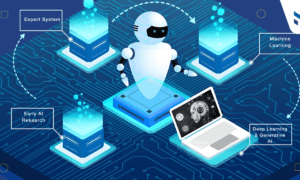NVIDIA has introduced generative AI tools, simulation, and perception workflows to ROS developers in Denmark.
Takeaway Points
- NVIDIA introduces generative AI tools to ROS developers in Denmark.
- ReMEmbR, built on ROS 2, uses generative AI to enhance robotic reasoning and action.
- NVIDIA said it is co-hosting a lunch and evening reception with Teradyne Robotics today, Oct. 22, in Odense, Denmark.
- On Oct 21, NVIDIA Partners with Deloitte to Deploy Digital AI Agents for Healthcare.
NVIDIA Introduces Generative AI Tools
NVIDIA and its robotics ecosystem partners on Tuesday at ROSCon in Odense, one of Denmark’s oldest cities and a hub of automation, said it is introducing generative AI tools, simulation, and perception workflows for Robot Operating System (ROS) developers.
Among the reveals were new generative AI nodes and workflows for ROS developers deploying to the NVIDIA Jetson platform for edge AI and robotics. Generative AI enables robots to perceive and understand the context of their surroundings, communicate naturally with humans, and make adaptive decisions autonomously.
Introducing Generative AI to the ROS Community
The company explained that ReMEmbR, built on ROS 2, uses generative AI to enhance robotic reasoning and action. It combines large language models (LLMs), vision language models (VLMs), and retrieval-augmented generation to allow robots to build and query long-term semantic memories and improve their ability to navigate and interact with their environments.
The speech recognition capability is powered by the WhisperTRT ROS 2 node. This node uses NVIDIA TensorRT to optimize OpenAI’s Whisper model to enable low-latency inference on NVIDIA Jetson, resulting in responsive human-robot interaction.
NVIDIA said it is co-hosting a lunch and evening reception with Teradyne Robotics today, Oct. 22, in Odense, Denmark.
NVIDIA Partners With Deloitte to Deploy Digital AI Agents for Healthcare
On Monday, NVIDIA said that it has partnered with Deloitte to develop AI agents using NVIDIA AI to bring the next generation of digital, frontline teammates to patients before they even step foot inside the hospital.
These virtual teammates can have natural, human-like conversations with patients, answer a wide range of questions, and provide supporting guidance prior to pre-admission appointments at hospitals.
Niraj Dalmia, partner, Deloitte Canada, commented, ”Avatar-based conversational AI agents offer an incredible opportunity to reduce the productivity paradox that our healthcare system faces with digitization. It could possibly be the complimentary innovation that reduces administrative burden, complements our healthcare human resources to free up capacity, and helps solve for patient experience challenges.”
Which hospital is using the AI agents powered by NVIDIA and Deloitte technologies?
According to the report, The Ottawa Hospital is using AI agents, powered by NVIDIA and Deloitte technologies, to provide more consistent, accurate, and continuous access to information.
Mathieu LeBreton, digital experience lead, The Ottawa Hospital, said, “The Frontline AI Teammate offers a novel and innovative solution to help combat our health human resource crisis — it has the potential to reduce the administrative burden, giving back time to healthcare providers to provide the quality care our population deserves and expects from The Ottawa Hospital. The opportunity to explore these technologies is well-timed, given the planning of the New Campus Development, a new hospital project in Ottawa. Proper identification of the problems we are trying to solve is imperative to ensure this is done responsibly and transparently.”
With the digital teammate, patients can experience benefits like 24/7 access to the digital teammate using a smartphone, tablet or home computer; reliable, preapproved answers to detailed questions, including information around anesthesia or the procedure itself; and post-surgery consultation to resolve any questions about the recovery process, potentially improving treatment adherence and health outcomes, NVIDIA said.



































